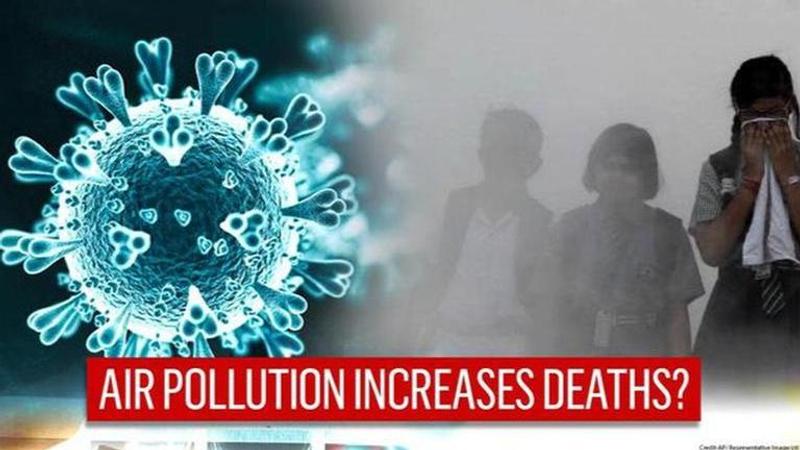Published 10:03 IST, October 27th 2020
COVID-19: Study estimates exposure to air pollution increases deaths by 15% worldwide
Amid the COVID-19 battle, a study on Tuesday revealed that long-term exposure to air pollution has been linked to an increased risk of deaths from COVID-19

Amid the COVID-19 battle, a study on Tuesday revealed that long-term exposure to air pollution has been linked to an increased risk of dying from COVID-19. The study further estimated that the proportion of deaths from the Coronavirus that could be attributed to the aggravating effects of air pollution for every country in the world.
The research team includes Professor Jos Lelieveld, of the Max Planck Institute for Chemistry, Mainz, Germany, and the Cyprus Institute Nicosia, Cyprus, Professor Thomas Munzel, from the University Medical Center of the Johannes Gutenberg University, Mainz, and the German Center for Cardiovascular Research, Mainz, and Dr Andrea Pozzer, from the Max Planck Institute for Chemistry.
Published in Cardiovascular Research, the study states that about 15% of deaths worldwide from COVID-19 could be attributed to long-term exposure to air pollution. In Europe the proportion was about 19%, in North America it was 17%, and in East Asia about 27%.
In their CVR paper, the researchers mentioned that a fraction of COVID-19 deaths that could be avoided if the population were exposed to lower counterfactual air pollution without fossil fuel-related emissions.
"The fraction of COVID-19 deaths that could be avoided if the population were exposed to lower counterfactual air pollution levels without fossil fuel-related and other anthropogenic [caused by humans] emissions. Attributable fraction does not imply a direct cause-effect relationship between air pollution and COVID-19 mortality (although it is possible). Instead, it refers to relationships between two, direct and indirect, i.e. by aggravating co-morbidities [other health conditions] that could lead to fatal health outcomes of the virus infection," the study read.
Data used by researchers
Incidentally, the study is also the first of its kind to distinguish between fossil fuel-related and other human-made sources of air pollution. Speaking to Republic Media Network, Jai Dhar Gupta, Founder of Nirvana Being and Founder of the Citizen Movement ‘My Right to Breathe’ acknowledged the study's findings and opined: 'You've already got a respiratory virus lurking that creates oxidative stress in the human body, now you combine that with the toxicity of air pollution, which further creates oxidative stress, and you've got a recipe for disaster. What North India is experiencing is unprecedented; nobody knows how this 'twindemic' will impact COVID symptoms and outcomes — all we know is that it can't be good!
Epidemiological data from the previous US and Chinese studies of air pollution and COVID-19 and the SARS outbreak in 2003 was used which was supported by additional data from Italy. The data was further combined with satellite data showing global exposure to polluting fine particles known as 'particulate matter'.
The results are based on epidemiological data collected up the third week in June 2020. The researchers stated that a comprehensive evaluation will follow after the pandemic has subsided.
Estimates for individual countries show, for example, that air pollution contributed to 29% of coronavirus deaths in the Czech Republic, 27% in China, 26% in Germany, 22% in Switzerland, 21% in Belgium, 19% in The Netherlands, 18% in France, 16% in Sweden, 15% in Italy, 14% in the UK, 12% in Brazil, 11% in Portugal, 8% in the Republic of Ireland, 6% in Israel, 3% in Australia and just 1% in New Zealand.
Limitations of the data
However, it is more difficult to exclude confounding factors as the US data was collected at the level of counties rather than from Even though 20 factors that could affect the results were accounted for, additional factors cannot be excluded.
Furthermore, another constraint is that the data have been collected in middle- to high-income countries (China, US, and corroborated by data from Europe) and the calculations were carried out for the whole world. This means that the results for low-income countries may be less robust.
(With Inputs from ANI)
Updated 10:11 IST, October 28th 2020




